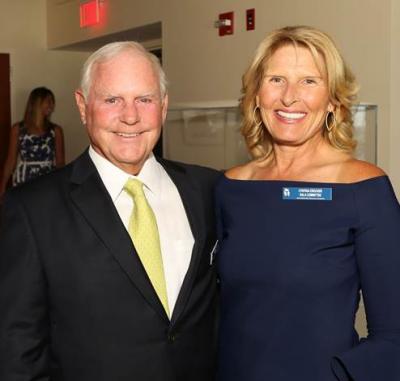Marion couple donates $1.5 million to sustain whaling museum
MARION — A lifelong love for the New Bedford Whaling Museum has led Marion summer resident Douglas Crocker to and his wife Cindy Crocker to donate $1.5 million to the museum last month to make sure it is around for generations to come.
Douglas Crocker has what he calls lifelong ties to Marion. His great grandmother built a house in Marion, which his mother eventually inherited.
He started visiting Marion as a kid, and his first job was maintaining the courts at the tennis club during the summer.
“On rainy days we would often say ‘why do we go to the whaling museum?’ As a young boy it was exciting to go over there,” Crocker said,
However, he says the museum is a “tremendously changed place” since the 40s.
Crocker says that in his lifetime the museum has had “new spaces built, and a lot of places modernized to show art.” He called the museum as it stands now “significantly more professional,” noting that before it “didn’t have the a lot of programs.”
His next door neighbor, Mary Ellen McCoy, got him involved with the Board of Trustees in 2009. His position on the board of Trustees gave him a unique insight into how he wanted his gift to the museum
A piece of the $1.5 million donation will go into the operating budget and art acquisition. But most of it will endow the leader of the museum’s curatorial team, Dr. Christina Connett.
The funds will provide for her salary and bonuses, with the remainder available for operating costs and the museum’s general funds.
“Christina is absolutely fantastic. I want to ensure that we keep her around,” Douglas Crocker said, to explain the endowment.
After a career in real estate investment in Chicago, Douglas Crocker now spends seven months of the year in Florida and returns to Marion in late May or early June to spend the summer there.
Despite the fact that he only spends part of the year in Marion, he is still committed to the Whaling Museum.
“I absolutely love it,” Crocker said, adding that, “It’s an institution — you have to give money or it won’t be around. I want to make sure I keep it going long after I am around.”














